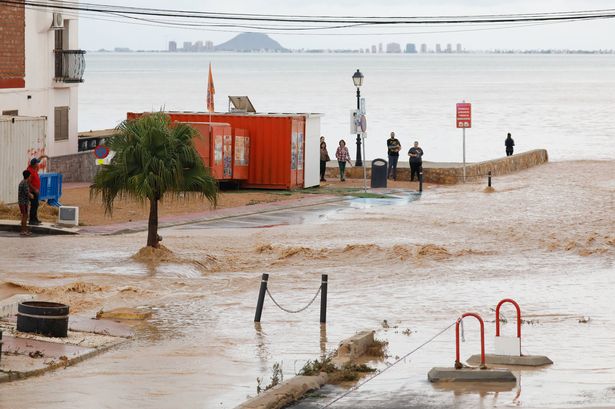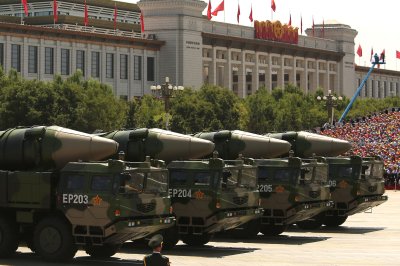After Storm Alice wreaked havoc in Spain last week, Brits staying in the Los Alcazares area of Murcia have been left withouta basic essential for a week due to contamination
A number of British tourists have revealed the desperate conditions in Murcia, Spain that has left them without running water for a week. Flooding across the Iberian Peninsula triggered by Storm Alice led to water supplies becoming contaminated throughout the region, with Spanish authorities issuing evacuation orders in certain areas.
Those who stayed behind have turned to TikTok to document their ordeal. Jodie Marlow shared clips of her “reality” from Los Alcazares, showing her family had “no access” to water. “I’m in a flood zone and we have had so much rain,” she explained in a video, which showed residents wading through ankle-deep murky water flowing through the streets.
“Six or seven days with no water, it’s been crazy,” she continued. “The town hall has been amazing though in keeping us up-to-date and they tried to keep us as safe as possible in making sure we went to high ground.”
Grateful that her car had survived the disaster, Jodie continued: “As you can see there is mud everywhere, but the council has been amazing – the clean-up has been insane.”
Yet, venturing into a local shop, Jodie highlighted the desperate situation on its shelves. “We are on one week of no water… this is the reality of what the shops look like,” she added, showing that bottled water was now in extremely short supply.
Large tanker lorries on the back have been sent to the area. Other consequences have seen Jodie forced to travel to another neighbourhood to use a laundrette to wash her clothes, while her family have resorted to using paper plates and cutlery as they are unable to wash up. “It’s been an eventful week,” she summarised.
Meanwhile, a second Brit – Jade Gartshore – confessed she had been unable to shower for four days in her own clip recorded in Los Alcazares. Instead, she was forced to travel to a community centre for access to clean water.
“We are lucky enough that our neighbours in Cartagena are helping us with water and shower facilities!” she explained. “We’ve had news that in the storm it has damaged a system meaning that our water is contaminated, we have told that I can be anywhere up to five days without water. This is day four, today our water has been turned off to treat the water.”
Like Jodie, however, she was quick to praise the local authorities. “I have to say the councils have been absolutely fantastic, we have had updates every couple of hours from the mayors, even 3am!” she hailed. “I feel very grateful to be part of such a beautiful community even in a difficult time.”
Writing in response, another Brit commented: “Here in Sucina, the water is off possibly [for] 6 days. Just been in my pool for a swish off, getting plenty of notices about the situation and we have a water truck where we can fill our bottles up!”
Another holidaymaker shared their predicament: “We’re in San Pedro and it’s the same – we’ve booked a hotel in Pilar for the week to go back and forward to shower and wash clothes.”
Meanwhile, a third TikTok user from nearby La Torre chimed in: “We have been told tonight the water is now not usable for personal use. We’re now in the same boat. We’re all be washing in the Mar Menor [lagoon] soon.”
It comes after a tornado wreaked havoc in nearby Cartagena, Murcia, on Friday (October 10), leading to the evacuation of 67 people. Authorities issued a red alert in the area due to the storm, warning of “extraordinary danger”.
Pablo Gárriz, Director General of Emergencies and the Interior, expressed his concern at the time: “The situation that concerns us most right now is in those municipalities where we have identified the possibility of heavy rain, hence the orange alert.”




